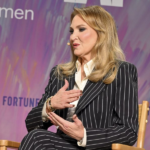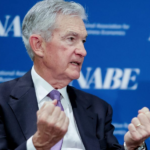The usual health checks on the U.S. economy have been disabled during the government shutdown, leaving analysts to comb over private data for clues. What they’re seeing, at least according to Moody’s, isn’t great.
Markets are climbing confidently despite the fact that last week concluded without the usual jobs data. Releases by the Bureau of Labor Statistics (BLS) are often key insights into the future trajectory of the economy, but investors are taking the optimistic view in the absence of any bad news.
He continued: “The bulk of the job gains in the ADP numbers were also in healthcare, and only very large companies, with over 500 employees, added to payrolls. Smaller companies are getting hit hardest by the tariffs and restrictive immigration policies.”
“Averaging the Revelio and ADP employment estimates for September suggests that there was essentially no job growth during the month,” the economist concluded, also referencing the Conference Board’s recent reporting that consumers are finding it increasingly difficult to find roles. This data showed confidence hasn’t been so low since the end of the pandemic, and added “there’s no better predictor of changes in unemployment, which thus likely rose again in September.”
Zandi continued: “The bottom line is that not having the BLS jobs data is a serious problem for assessing the health of the economy and making good policy decisions. But the private sources of jobs data are admirably filling the information gap, at least for now. And this data shows that the job market is weak and getting weaker.”
As the impasse in Washington shows no sign of easing the majority of economists are now expecting the government shutdown to continue past the middle of October—the next meeting of the Federal Open Market Committee (FOMC) to decide the base rate.
Without the data being shared by government agencies during the blackout, UBS’s Paul Donovan previously warned “private data is like viewing the economy through a keyhole —clear, but with a narrow field of vision. Official data is like opening the door. Private data relies on official data to model the bits of the economy outside its field of vision, and that modeling becomes less accurate in the absence of official data.”
Likewise, Pantheon Macroeconomics’ senior U.S. economist Oliver Allen warned clients in a note last week that while data from the likes of ADP will hold more weight in a void of information from the BLS, official data may come back more depressed than expected. Allen wrote: “We suspect the BLS estimates for growth in private payrolls in September—when eventually released—will be flattered by a big jump in leisure and hospitality jobs, the likely result of poor seasonal adjustment. Our forecast, therefore, remains for a 75K gain in private payrolls, although we see headline payrolls rising by just 50K, partly due to a further drop in federal government employment.”









